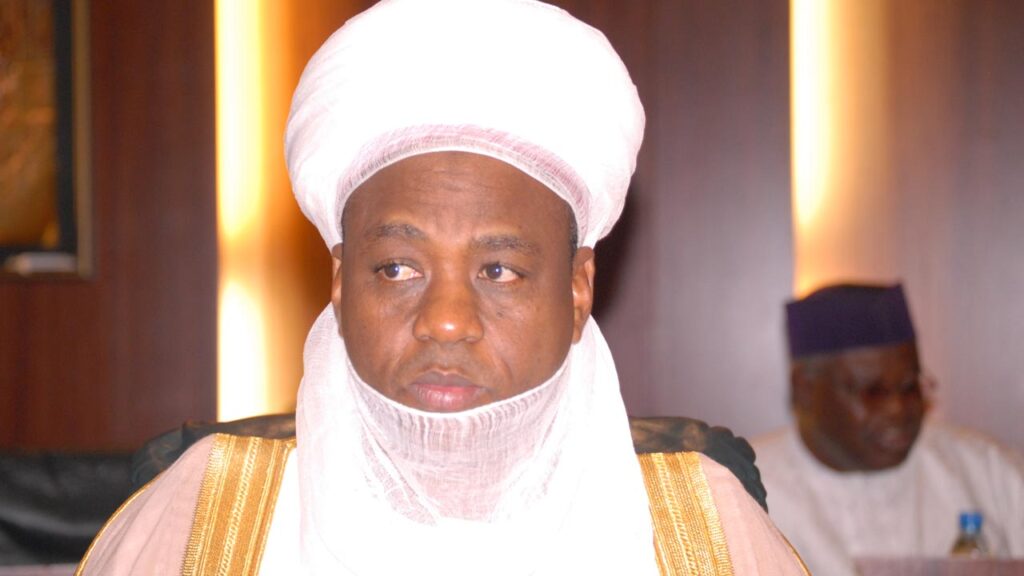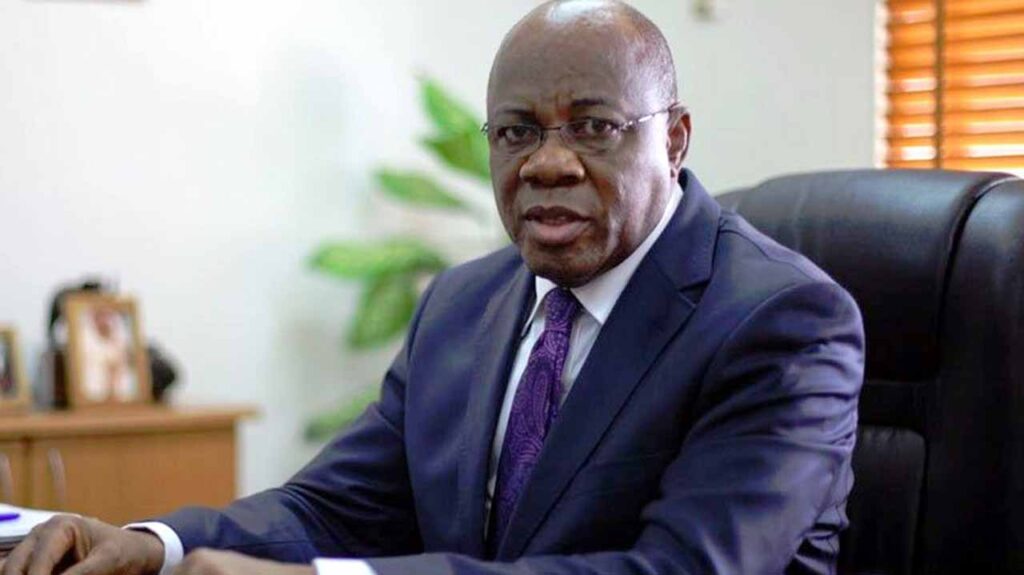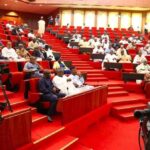
• Industrial action illegal, premature, says AGF
• Aviation unions to withdraw services at airports
• Organised private sector vows to enforce ‘no work no pay’
• NANS backs labour, asks FG to concede
• Don’t allow strike to happen, Yoruba group begs Tinubu
• WAEC candidates to stay at home as labour shuts down schools
All government establishments, including members of the private sector, will down tools today as organised labour begins a nationwide indefinite strike over government’s failure to pass into law a new National Minimum Wage Act and reverse the hike in electricity tariff to N65/KWh.
Also, all affiliate unions of the Nigeria Labour Congress (NLC) and the Trade Union Congress of Nigeria (TUC) have been mobilised to comply with the strike.
This came as the leadership of the National Assembly met with the organised labour in Abuja, yesterday, in a last-ditch effort to avert a strike, which did not yield a desired outcome.
Specifically, the organized labour said its decision stands despite last-minute efforts by the National Assembly leadership to prevent a potential economic shutdown by the unions.
The unions said that they will meet and discuss the appeal made by the leadership of the National Assembly in need to suspend the proposed strike and allow for more dialogue with its organs before taking a decision.
“As a responsive parliament, the leadership of the National Assembly, comprising the President of the Senate, Godswill Akpabio, and Speaker of the House of Representatives, Abbas Tajudeen, is taking proactive steps to mediate and avert the impending industrial action, which would have severe repercussions on the populace and economy,” said a statement jointly signed by spokespersons of both legislative chambers, Yemi Adaramodu and Akin Rotimi, Jr.
The meeting was also attended by the Secretary to the Government of the Federation (SGF), George Akume; Minister of National Planning, Atiku Bagudu; Minister of Labour; Head of the Civil Service and others.
The statement added: “The National Assembly notes that both parties have tenable reasons for their respective positions. In view of this, the National Assembly leadership and the Chairmen of the Senate and House Committees on Labour, Employment and Productivity respectively, Diket Plang, and Adegboyega Adefarati, are looking to engage both parties in constructive dialogue and explore a variety of solutions in addressing the issues at hand.”
Also, Attorney General of the Federation (AGF) and Minister of Justice, Lateef Fagbemi, yesterday, described the planned industrial action by organised labour as illegal and premature.
He also said the strike was at variance with the order of the National Industrial Court.
The AGF was reacting to a statement made on May 31, 2024, by the leadership of NLC and TUC announcing that an indefinite nationwide strike would begin today.
He said: “You are aware that the federal and state governments are not the only employers to be bound by a new national minimum wage. Hence, it is vital to balance the interest and capacity of all employers of labour in the country (inclusive of the organised private sector) to determine a minimum wage for the generality of the working population.”
The AGF drew the attention of organised labour to Sections 41(1) and 42(1) of the Trade Disputes Act 2004 (as amended), which requires both NLC and TUC to issue mandatory strike notices of a minimum of 15 days.
He also argued that at no time did either NLC or TUC declare a trade dispute with their employers, or issue any strike notice as required by law for such action to be legitimate and lawful.
“It is not in doubt that the fundamental importance of the 15-day notice is underscored by the fact that Sections 41 & 42(1) criminalise non-compliance with this requirement for a valid declaration of a strike action,” Fagbemi said.
He called to question, the legality or legitimacy of the proposed strike, given the fact that both NLC and TUC failed to comply with the statutory condition precedents (dispute resolution procedures) provided for under Section 18(1)(a) of the Trade Disputes Act 2004 (as amended).
Fagbemi held that the proposed strike is in breach of relevant conditions itemised under Section 31(6) of the Trade Unions Act (as amended).
He said: “I wish to further draw your attention to the fact that the conditions outlined by our national legislations for exercising the right to strike are in tandem with the International Labour Organisation’s principles concerning the right to strike.
“It is the position of the ILO Committee on Freedom of Association that the obligation to give prior notice, obligation to have recourse to conciliation, mediation and (voluntary) arbitration procedures in industrial disputes, etc are prior prerequisites for declaring a strike.”
The AGF contended that the alleged issuance of an ultimatum to the government by labour for the conclusion of negotiations before May 31, 2024, does not satisfy the requirement of issuing a categorical and unequivocal formal notice of strike action.
He reminded the organised labour of the pendency of the interim injunctive order granted on June 5, 2023, in suit no: NICN/ABJ/158/2023, Federal Government of Nigerian & anor V. Nigeria Labour Congress & anor, which order restrained both NLC and TUC from embarking on any industrial action.
“This order has neither been stayed nor set aside. Therefore, it remains binding on the labour unions,” he added.
MEANWHILE, the Organised Private Sector (OPS) threatened to enforce the ‘no work no pay’ principle for staff who do not appear at their workplaces during the strike.
Director General of the Nigeria Employers’ Consultative Association (NECA), Adewale-Smatt Oyerinde, who is currently in Geneva at a conference organised by the International Labour Organisation (ILO), said private employers align their position with the Attorney General of the Federation (AGF) that the strike is illegal.
“There are procedures to follow, and we will not support any arbitrariness. Nigeria is a sovereign state with rules that guide everyone. We will support appropriateness and align with it in the context of the rule of law. Even though we are social partners, it is guided by the rule of law, and that is what we will align with. Section 43 of the Trade Union Act explicitly states, ‘no work no pay’, and we will enforce it to the letter,” he said.
NLC President, Joe Ajaero, and his TUC counterpart, Festus Osifo, had, after the last meeting with the tripartite committee on May 31, lamented the Federal Government’s lack of commitment to a successful national minimum wage negotiation exercise.
They maintained that since the national minimum wage negotiation exercise has not been concluded and the agreed wage passed into law, the hike in electricity tariff has not been reversed, and the categorisation of consumers into Bands has not stopped as demanded, they would embark on the strike to press home their demands. They also lamented that the hike in electricity tariff has further impoverished the people and denied them the right to decent living.
Up till yesterday, circulars continued to emerge from affiliate unions, including the Nigeria Union of Journalists (NUJ), Petroleum and Natural Gas Senior Staff Association of Nigeria (PENGASSAN) and workers in the aviation sector, comprising the National Union of Air Transport Employees (NUATE), Air Transport Services Senior Staff Association of Nigeria (ATSSSAN), Association of Nigeria Aviation Professionals (ANAP) and National Association of Aircraft Pilots and Engineers (NAAPE), directing members across the nation to ensure full compliance with the NLC and TUC directive.
The general secretaries of unions in the aviation sector urged workers to recognise the seriousness of the struggle and comply unfailingly. They noted that since many international flights to Nigeria were already airborne, the strike would commence at international terminals on Tuesday, June 4.
National Secretary of NUJ, Achike Chude, in the circular, said the action had become inevitable following the inability of the government to yield to the demand for a living wage. He said all officers, state and national, are expected to participate.
The Public Relations Officer, PENGASSAN, Lagos Zone, said there would be a joint task force of the TUC/NLC and Lagos Zonal Executive Committee (ZECOM) going around to ascertain full compliance, and that any company in default would be penalised.
Similarly, the Nigeria Union of Teachers (NUT) requested its members to join the strike action fully, warning that on no condition should any school be allowed to open from Monday.
NUT Secretary General, Dr Mike Ene, in the notice, said the national leadership would not entertain any excuse for failure from any state. He said strict compliance is required “because NUT, particularly, has a stake in the struggle.”
This followed a statement by an official of the West Africa Examination Council (WAEC) that the strike scheduled will not disrupt ongoing examinations.
But while addressing a press conference yesterday, in Lagos, the state chairpersons, Agnes Sessi (NLC), and Gbenga Ekundayo (TUC), said there will be no examination across the state, urging parents to keep their wards at home.
Sessi said: “All schools, public and private, will be shut down. This is for the safety of life and protection of our children, since the teachers, who are members of NUT, are joining in the strike.
“For the protection of our children, there will be no WAEC tomorrow (today) in Nigeria, and let the government be prepared to reschedule another for our students, since they have already failed us. Parents should keep their children at home. Their lives matter to us. It is not a threat. But we are telling you that the Nigerian government has failed us and the generation yet unborn. Since our government has refused to give us a living wage or better minimum wage that is commensurate with the socio-economic economic realities, we say no! The exams will be rescheduled.”
Ekundayo insisted: “We cannot continue like this. We know what has been spent for the renovation of the National Assembly and to complete the construction of the residence of the Vice President, and the humongous amount spent on hajj sponsorship, and states buying exotic cars, and you want to say that the common man cannot survive. No! It is time for the average worker to breathe! This cannot continue.”
In compliance with the indefinite strike declared by organised labour, aviation unions have directed members to withdraw services across airports in Nigeria.
The withdrawal would take effect by 12:00 am on Monday, June 3, the unions declared.
The unions include the National Union of Air Transport Employees (NUATE), Air Transport Services Senior Staff Association of Nigeria (ATSSSAN), Association of Nigerian Aviation Professionals (ANAP) and the National Association of Aircraft Pilots and Engineers (NAAPE).
It was learnt that they decided after an emergency meeting held on Sunday.
The unions in a joint statement signed by Comrade Ocheme Aba, General Secretary NUATE; Comrade Frances Akinjole, Deputy General Secretary ATSSSAN; Comrade Abdul Rasaq Saidu, Secretary General ANAP and Comrade Olayinka Abioye General Secretary NAAPE directed all branches to comply.
RELATEDLY, the National Association of Nigerian Students (NANS) called on the Federal Government to accept the demands of organised labour.
The President, Pedro Obi, in a statement in Ibadan, said: “NANS stands in solidarity with NLC and TUC in their call for an increase in the national minimum wage. We urge the Federal Government to respond promptly and favourably to the legitimate demands of Nigerian workers.
“The current economic realities have significantly eroded the purchasing power of the average Nigerian worker. Inflation, the rising cost of living, and the continuous devaluation of the naira have made it increasingly difficult for many families to meet their basic needs. It is within this context that the organised labour’s demand for a living wage becomes not only reasonable but also imperative.”
The association said the youths and student population of Nigeria are directly affected by the welfare of parents and guardians, who are predominantly workers and civil servants. It said an improved minimum wage would translate into better living conditions for millions of Nigerian families and provide a better environment for students to focus on their education and personal development.
NANS added: “We urge the government to engage the labour unions in constructive and meaningful negotiations, aimed at reaching a mutually beneficial agreement on the minimum wage.
“Prioritise workers’ welfare and recognise the critical role Nigerian workers play in the development of our nation, and prioritise their welfare in policy-making decisions.
“Implement a Sustainable Wage Policy; establish a sustainable and fair wage policy that reflects the current economic realities and is regularly reviewed to keep pace with inflation and cost of living adjustments.”
But the president of Yoruba Ronu Leadership Forum, Akin Malaolu, called on President Bola Tinubu to do everything possible and ensure the strike does not hold.
In a chat with The Guardian, Malaolu urged Tinubu to call for more discussions with the labour unions, in good faith.
He also admonished the Federal Government to review the wage offered “because the economy as well as the national currency are both gone.”
He said: “N250,000 naira is not a bad idea as minimum wage. It is quite minimal in value and welfare. The value of the naira dictates our welfare, and our welfare is equally determined by the minimum wage. We deserve to breathe. I hope my advice is good enough for your government to accept and implement without further delay.”













